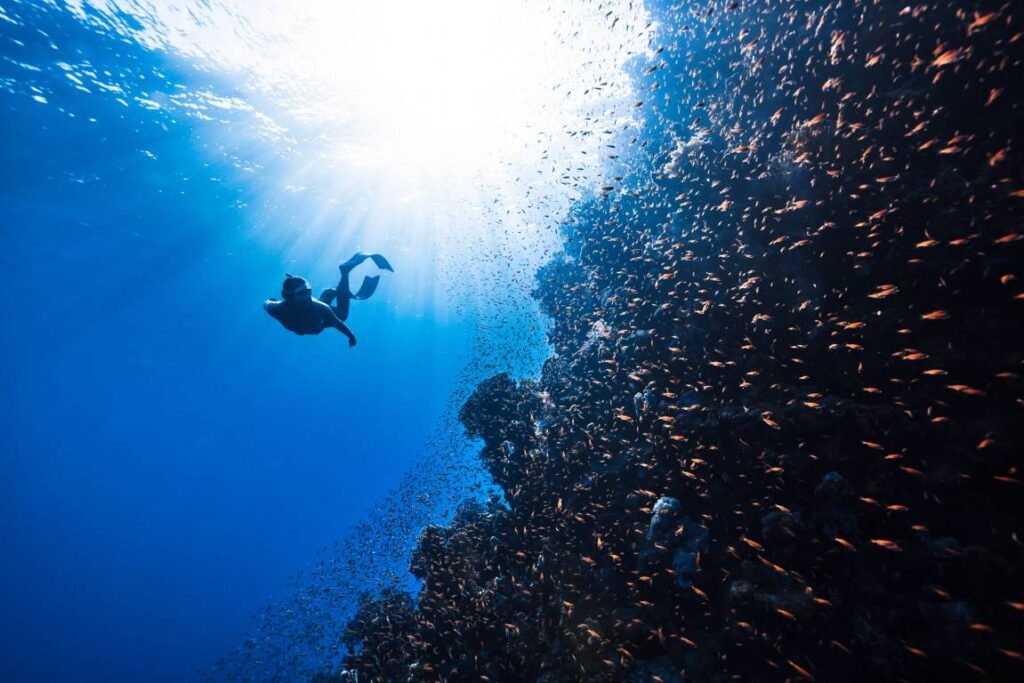Corals are critically important to the health and well-being of the world’s oceans. These remarkable animals play a crucial role in maintaining marine biodiversity and providing numerous ecosystem services. Here are some reasons why corals are so important to the ocean:
- Habitat and shelter: Coral reefs provide a habitat and shelter for an enormous variety of marine organisms, including fish, crustaceans, mollusks, and many others. The complex structure of coral reefs provides nooks and crannies for small organisms to hide and large spaces for larger animals to seek refuge.
- Food source: Many marine species rely on coral reefs as a primary food source. Coral reefs support a diverse range of algae, plankton, and other organisms, which in turn provide food for larger animals.
- Carbon storage: Coral reefs are highly efficient at storing carbon. They are estimated to store more carbon per unit area than any other ecosystem on the planet. This helps to regulate the Earth’s climate by removing carbon dioxide from the atmosphere.
- Tourism: Coral reefs are a major tourist attraction, drawing millions of visitors each year. This creates jobs and generates income for local communities, which can help to reduce poverty and improve the standard of living.
- Medical benefits: Many coral species produce compounds with potential medical benefits. These compounds have been used to develop drugs to treat cancer, arthritis, and other diseases.

Unfortunately, coral reefs are under threat from a range of human activities, including pollution, overfishing, and climate change. It is estimated that 75% of the world’s coral reefs are threatened, and some experts predict that they could be completely destroyed by 2050 if current trends continue. Protecting coral reefs is therefore essential to ensure the long-term health and survival of our oceans.
Ways to to protect coral reefs
Protecting coral reefs requires collective efforts and a comprehensive approach that involves individuals, communities, and governments. Here are some ways to protect coral reefs:
- Reduce pollution: One of the biggest threats to coral reefs is pollution from land-based sources, such as agriculture, sewage, and industrial waste. To reduce pollution, individuals can avoid littering, properly dispose of trash, and use eco-friendly products. Governments can implement stricter regulations to limit pollution from industries and enforce laws that protect the marine environment.
- Practice sustainable fishing: Overfishing can deplete fish populations that are crucial to the health of coral reefs. Individuals can choose to consume sustainable seafood and avoid purchasing products derived from endangered species. Governments can implement measures to limit fishing in sensitive areas and protect key marine habitats.
- Reduce carbon emissions: Climate change is a major threat to coral reefs, as rising temperatures and ocean acidification can damage and kill coral. Individuals can reduce their carbon footprint by using renewable energy sources, walking or biking instead of driving, and reducing energy consumption at home. Governments can implement policies to promote renewable energy, reduce carbon emissions, and protect forests and other natural carbon sinks.
- Support coral reef conservation efforts: Individuals and organizations can support conservation efforts by donating to organizations that work to protect coral reefs, participating in beach cleanups, and volunteering for coral reef restoration projects. Governments can allocate resources to support research and monitoring of coral reef health, establish protected areas, and regulate tourism activities that could damage coral reefs.

Protecting coral reefs is crucial to ensure the long-term health and survival of our oceans. By taking collective action, we can protect these vital ecosystems for future generations.
You may also like,

